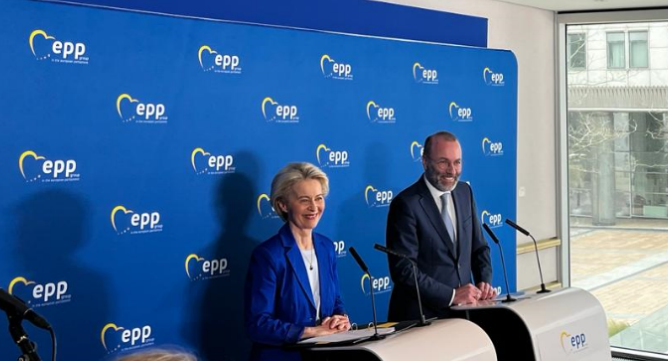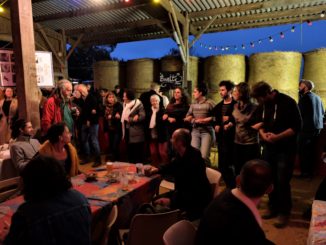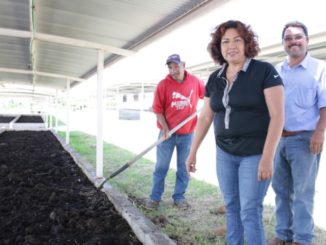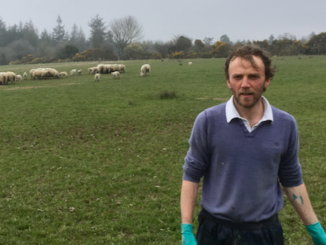
The self-proclaimed ‘farmers party’ failed to mention the farming sector once while officially firing the election gun in Brussels on Wednesday (21 February). That’s despite the centre-right EPP’s efforts to position itself as the friend of farmers in the run up to June’s EU elections.
Instead, defence, security and industry, as well as ways to bring big business on board with climate ambitions, are higher up on von der Leyen’s menu for next five years, according to the Commission President and her party’s chairman, Manfred Weber.
The two outlined their key priorities going forward at a press point in the European Parliament on Wednesday (21 February) after the party confirmed von der Leyen to be their lead – and only – candidate for the next five-year term at the helm of the European Commission.
Meanwhile, questioned about the future of the Green Deal, Weber tried to position this as an “EPP deal”.
“We are the party of Green Deal,” he said, promising to keep ownership of it throughout the election campaign “in the interest of future generations”.
Watch the whole launch for yourself here
Reactions
His comments were met with derision from commentators, with one Parliamentary insider calling them “fantasists and gaslighters at their best”.
Others pointed out that the centre-right have systematically waged a sustained campaign against the Green Deal over the past few years, including the EU’s plan to reduce the use and risk of pesticides, which was killed off by the Commission President earlier this month, and the EU’s nature restoration law, which the EPP waged a sustained campaign against.
Background
The omission of the farming sector is notable with a backdrop of the farmers’ protests which have dominated headlines and, increasingly, the political agenda since the beginning of the year.
The spate of protests, which spread from Germany like dominoes to others including France, Spain, Lithuania, finally worked their way up to the home of the EU institutions back at the beginning of February.
Von der Leyen has been keen to position herself on the farmers’ side in recent weeks, meeting with farmers’ associations on the sidelines of the protests and promising a new package to simplify the administrative burden faced by farmers.
It also comes on the back of the launch of the Commission President’s strategic dialogue on the future of agriculture, meant to direct the future course of agrifood policy and the farming sector.
But the response so far has failed to quell the unrest, with small farmers’ association European Coordination Via Campesina (ECVC) revving up for round two in Brussels on Monday (26 February).
“It’s a pity that EU leaders don’t understand the importance of farming for the future of Europe,” ECVC’s Morgan Ody told ARC, adding that they will continue reminding politicians of this reality via their protests throughout Europe.
Protests also continue elsewhere across the bloc, with French farmers kicking their protests up a notch this week ahead of the annual salon de l’agriculture, while Czech farmers joined forces with counterparts from neighbouring Germany, Poland and Slovakia to protest on Thursday (22 February).
More
European Farmers are Angry: Addressing Root Causes Would Overcome Polarisation
Brussels Round up – Mirror Clauses, Mixed Messages & Farm to Facts
Under Pressure Commission Grants CAP Derogation, Extends Ukraine Import Liberalisation





